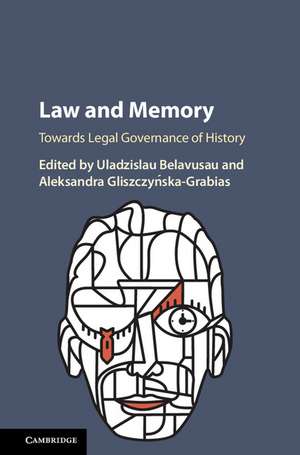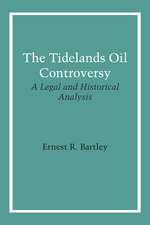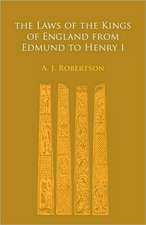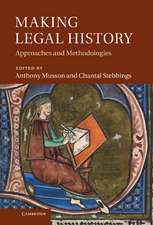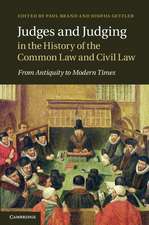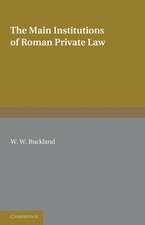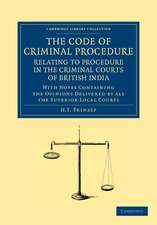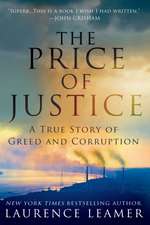Law and Memory: Towards Legal Governance of History
Editat de Uladzislau Belavusau, Aleksandra Gliszczyńska-Grabiasen Limba Engleză Hardback – 18 oct 2017
| Toate formatele și edițiile | Preț | Express |
|---|---|---|
| Paperback (1) | 357.29 lei 43-57 zile | |
| Cambridge University Press – 12 dec 2018 | 357.29 lei 43-57 zile | |
| Hardback (1) | 895.68 lei 43-57 zile | |
| Cambridge University Press – 18 oct 2017 | 895.68 lei 43-57 zile |
Preț: 895.68 lei
Preț vechi: 1041.48 lei
-14% Nou
Puncte Express: 1344
Preț estimativ în valută:
171.38€ • 179.42$ • 141.81£
171.38€ • 179.42$ • 141.81£
Carte tipărită la comandă
Livrare economică 07-21 aprilie
Preluare comenzi: 021 569.72.76
Specificații
ISBN-13: 9781107188754
ISBN-10: 110718875X
Pagini: 458
Ilustrații: 2 b/w illus. 1 table
Dimensiuni: 158 x 235 x 28 mm
Greutate: 0.77 kg
Editura: Cambridge University Press
Colecția Cambridge University Press
Locul publicării:New York, United States
ISBN-10: 110718875X
Pagini: 458
Ilustrații: 2 b/w illus. 1 table
Dimensiuni: 158 x 235 x 28 mm
Greutate: 0.77 kg
Editura: Cambridge University Press
Colecția Cambridge University Press
Locul publicării:New York, United States
Cuprins
Acknowledgements; Contributors; Introduction: memory laws: mapping a new subject in comparative law and transitional justice Uladzislau Belavusau and Aleksandra Gliszcyńska-Grabias; Part I. International Law: 1. The UN Human Rights Committee's view of the past Antoon De Baets; 2. The role of international criminal tribunals in shaping the historical accounts of genocides Marina Aksenova; 3. The 'right to truth' in international law: the 'last utopia'? Patricia Naftali; Part II. European Law (Council of Europe and European Union): 4. Kononov vs Latvia as the ontological security struggle over remembering the Second World War Maria Mälksoo; 5. Testing the 'uniqueness': denial of the Holocaust vs denial of other crimes before the European Court of Human Rights Paolo Lobba; 6. Legislating history: the European Union and the denial of international crimes Luigi Cajani; Part III. National Perspectives within European Union: 7. Challenging historical facts and national truths: an analysis of cases from France and Greece Ioanna Tourkochoriti; 8. Legal silences and the memory of Francoism in Spain Alfons Aragoneses; 9. Politics of public knowledge in dealing with the past: postcommunist experiences and some lessons from the Czech Republic Jiří Přibáň; 10. Adjudication in deportation cases of Latvia and international law Ieva Miluna; 11. Judging the conducător: fascism, communism and legal discontinuity in post-war Romania Cosmin Sebastian Cercel; 12. Dealing with the past in and around the fundamental law in Hungary Miklós Könczöl; 13. On the politics of resentment, mis-memory and constitutional fidelity. The demise of the Polish overlapping consensus? Tomasz Tadeusz Koncewicz; Part IV. Perspectives beyond European Union: 14. Defending Stalinism by means of criminal law: Russia, 1995–2014 Nikolay Koposov; 15. Cutting the umbilical cord: the narrative of the national past and future in Ukrainian de-communization policy Lina Klymenko; 16. Banning genocide denial – should geography matter? Robert A. Kahn; 17. 'From banning Nakba to bridging narratives': the collective memory of 1948 and transitional justice for Israelis and Palestinians Jeremie Bracka; 18. Historical revisionism and the settler state: the Canadian experience Michael Morden; 19. Defense of democracy and the preservation of collective memory through criminal legislation: the challenges of reconciliation in Peru Salvador Herencia Carrasco; Epilogue: beyond 'memory laws': towards a general theory of law and historical discourse Eric Heinze; Index.
Recenzii
'The law commonly drifts between an obligation to forget and a duty to remember, vigorously endorsed and imposed through the policing of legal truths. The editors of this book offer a spectacular walk down memory lane and a unique must-have to anyone interested in how law shapes historical imagination, populated with selected victims and imposed heroes of the past.' Dimitry Kochenov, Chair in EU Constitutional Law at the University of Groningen, Faculty of Law
'There is no shortage of academic works on 'collective memory' and on legal instruments to deal with the past. Strangely enough, there has been precious little serious academic literature combining these two themes. The editors of this ambitious, path-breaking volume have done precisely that. By lining up an impressive group of scholars from a large number of countries, they succeeded in painting a rich, interdisciplinary landscape of laws shaping collective memory, and of collective memory shaping the law, in Europe and elsewhere. By producing such a formidable volume they have opened a new stream in the academic thinking about the intersections between law and social memory, and from now on, no scholar tackling these issues will be able to afford to ignore this book.' Wojciech Sadurski,, Challis Professor of Jurisprudence, The University of Sydney and Professor at the Centre for Europe, The University of Warsaw
'The greatest virtue of this book is that while providing a comparative perspective on various memory laws, it does not attempt to generalize them but rather acknowledges that they remain deeply embedded within national contexts. The collection of the case studies proves that a state's attitude towards public discussion of history reflects its attitude towards the rights of its citizens, and it also shapes the public understandings of the past.' Gábor Halmai, Professor and Chair of Comparative Constitutional Law, European University Institute, Florence
'Law and Memory: Towards Legal Governance of History is … a timely contribution that expands the field of conventional memory studies by investigating legal norms that are to shape memories. Highly topical, the volume also speaks to political developments presently unfolding.' Félix Krawatzek, Journal of Law and Society
'… this book provides thorough analyses of a topic relevant for both Law and Memory Studies. Rich in case studies, the essays give the reader a deeper understanding of aspects most vital to the discussion of memory laws. The book … provides important emphasis and an overdue acknowledgment of the relevance of disciplinary cooperation engendering conversation between the two fields of Law and Memory.' Katrin Antweiler, Review Journal for the Study of Culture
'[T]he dangers of the mediation of history through political idolatry or reactionary memory laws … render the edited volume on Law and Memory: Towards Legal Governance of History essential. … [M]emory laws seem antithetical to the liberal spirit of allowing people the freedom to come to terms with the past, but they also provide an opportunity for the State to effectively sort people into good and bad citizens, based on how much they have internalized a State-sponsored collective discourse.' Suryapratim Roy, The Journal of Comparative Law
'As [this] excellent … edited collection demonstrates, law can be used as a tool both to guard memory and to distort official history and attack seekers of truth.' Tom Gerald Daly, International Journal of Constitutional Law
'Let me state upfront that this is a fascinating volume coedited by two of the leading figures in the emergent field of the study of memory laws … Social scientists and legal scholars, in particular, will find much to fruitfully occupy them in its pages, regardless of whether their interest in the topic is normative and theoretical or empirical and case-driven.' George Soroka, Nationalities Papers
'There is no space to comment on each one of the articles of this excellent collection. Suffice is to say that they deal with a broad array of cases from Europe, Israel and Palestine, Canada and Perú … The cases selected present us with a view of the way memory is governed by the law and the challenges it presents for us.' Farid Samir Benavides-Vanegas, International Journal for the Semiotics of Law
'There is no shortage of academic works on 'collective memory' and on legal instruments to deal with the past. Strangely enough, there has been precious little serious academic literature combining these two themes. The editors of this ambitious, path-breaking volume have done precisely that. By lining up an impressive group of scholars from a large number of countries, they succeeded in painting a rich, interdisciplinary landscape of laws shaping collective memory, and of collective memory shaping the law, in Europe and elsewhere. By producing such a formidable volume they have opened a new stream in the academic thinking about the intersections between law and social memory, and from now on, no scholar tackling these issues will be able to afford to ignore this book.' Wojciech Sadurski,, Challis Professor of Jurisprudence, The University of Sydney and Professor at the Centre for Europe, The University of Warsaw
'The greatest virtue of this book is that while providing a comparative perspective on various memory laws, it does not attempt to generalize them but rather acknowledges that they remain deeply embedded within national contexts. The collection of the case studies proves that a state's attitude towards public discussion of history reflects its attitude towards the rights of its citizens, and it also shapes the public understandings of the past.' Gábor Halmai, Professor and Chair of Comparative Constitutional Law, European University Institute, Florence
'Law and Memory: Towards Legal Governance of History is … a timely contribution that expands the field of conventional memory studies by investigating legal norms that are to shape memories. Highly topical, the volume also speaks to political developments presently unfolding.' Félix Krawatzek, Journal of Law and Society
'… this book provides thorough analyses of a topic relevant for both Law and Memory Studies. Rich in case studies, the essays give the reader a deeper understanding of aspects most vital to the discussion of memory laws. The book … provides important emphasis and an overdue acknowledgment of the relevance of disciplinary cooperation engendering conversation between the two fields of Law and Memory.' Katrin Antweiler, Review Journal for the Study of Culture
'[T]he dangers of the mediation of history through political idolatry or reactionary memory laws … render the edited volume on Law and Memory: Towards Legal Governance of History essential. … [M]emory laws seem antithetical to the liberal spirit of allowing people the freedom to come to terms with the past, but they also provide an opportunity for the State to effectively sort people into good and bad citizens, based on how much they have internalized a State-sponsored collective discourse.' Suryapratim Roy, The Journal of Comparative Law
'As [this] excellent … edited collection demonstrates, law can be used as a tool both to guard memory and to distort official history and attack seekers of truth.' Tom Gerald Daly, International Journal of Constitutional Law
'Let me state upfront that this is a fascinating volume coedited by two of the leading figures in the emergent field of the study of memory laws … Social scientists and legal scholars, in particular, will find much to fruitfully occupy them in its pages, regardless of whether their interest in the topic is normative and theoretical or empirical and case-driven.' George Soroka, Nationalities Papers
'There is no space to comment on each one of the articles of this excellent collection. Suffice is to say that they deal with a broad array of cases from Europe, Israel and Palestine, Canada and Perú … The cases selected present us with a view of the way memory is governed by the law and the challenges it presents for us.' Farid Samir Benavides-Vanegas, International Journal for the Semiotics of Law
Descriere
The volume revisits memory laws as a phenomenon of global law, transitional justice, historical narratives and claims for historical truth
